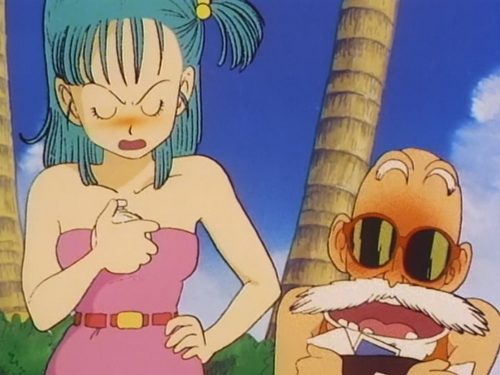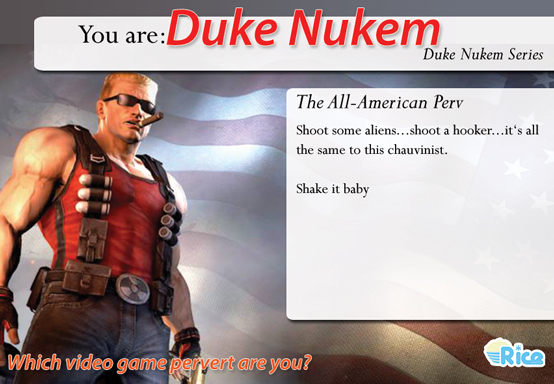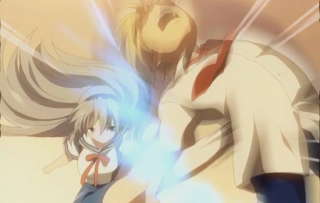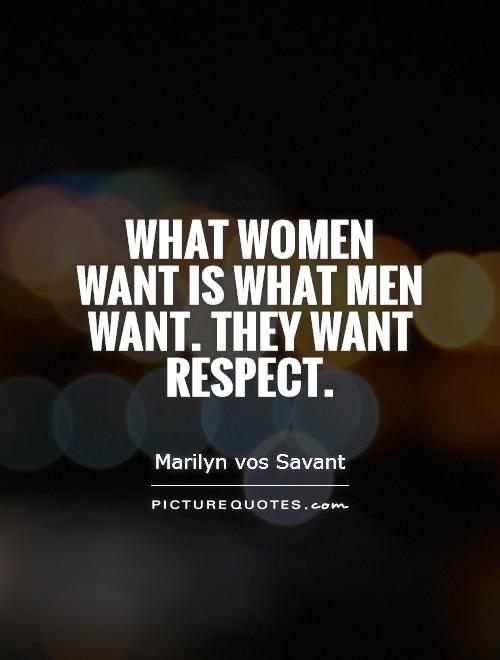You know the “funny pervert” type. The teenage boy who can’t stop hitting on every girl he sees. The old man who attempts to grope any woman under the age of 30 without fail. The troupe of boys who peep through the sliding door of the bathhouse to ogle their female friends’ developing bodies.
The funny pervert is a character archetype in the media — the (typically male) character who takes their sex drive to the extreme and whose lustful antics towards every female in sight are played off as humorous. He is not every boy or man who expresses interest towards the opposite sex or tries their darndest to get laid; rather, he is the one whose intense objectification of women and verbal or physical actions crosses the line into harassment.
Unfortunately, the funny pervert is still a staple in many video games — particularly Japanese imports. Sometimes he is even the hero of the game, though more often than not he is the funny sidekick (think Yosuke from Persona 4 or Sunohara from Clannad). The problem with this character is not simply in his existence, but that, despite his icky behavior, he is still presented as an overall “good guy.”

This presentation should be concerning for all gamers, male and female alike, for three main reasons: it normalizes sexual harassment, codes reactive violence against men as humorous, and establishes an antagonistic relationship between the sexes. The consequences of such representations are harmful and far-reaching — and as such, both consumers and producers of games need to be made more aware of the real-world issues that the funny pervert character represents, interacts with, and promotes. So, without further ado, here are the three biggest reasons why the pervert archetype needs to go the way of the dinosaurs.
1. It normalizes sexual harassment

The fact that this quiz exists speaks volumes
When sexual harassment is presented as funny, people are less likely to consider it a serious problem. Victims feel too embarrassed to report a situation they’ve been conditioned to laugh at, and perpetrators don’t understand that what they’re doing is wrong and punishable by the law. I’m sure the boys who spent middle school stalking and harassing my friends and I thought it was one big joke, until they got in trouble with the school authorities.
The situation is made even worse when the character in question is presented as a “good guy” who, despite his gross behavior, is really a heroic person who is willing to sacrifice himself for the common good. For example, protagonist Sigma in Virtue’s Last Reward spends the game making sexually explicit comments towards all of his female companions — especially the ones who are too young/ignorant to know what’s he’s talking about.
Yet, he’s still presented as the self-sacrificial hero of the game who truly cares about all of the women he’s harassing.
In reality, the guy who tells you to bend over in a sexually explicit way is probably not someone who genuinely cares about you as a person, and not the person you want to be trapped in a warehouse with. Even if he is an all-around decent guy, that still doesn’t excuse his bad behavior or mean that he shouldn’t be called out on it.
Sexual harassment, whether verbal or physical in nature, isn’t a joke — and treating it as such doesn’t do anyone any good. In the real world, people get disciplined, fired, and arrested for aggressively lewd comments, groping, and stalking. Victims feel upset, angry, scared, and violated. Sexual harassment isn’t normal or funny, and the media should stop treating it as such.
2. It codes violence against men as humorous

In the media, the reaction to voyeurism or lewd comments, whether deliberate or accidental, is almost always violence. The new boy at the magical school accidentally falls onto and gropes the princess, and in return she punches him in the face. In both Persona 3 and 4, the protagonist and his male companions accidentally walk in on their female friends bathing, and the girls’ response is to violently attack them.
These instances aren’t meant to be seen as dangerous violence or domestic abuse; they’re meant to be funny. Violence against men is coded as humorous and justified, and this becomes a problem when it spills over into the real world.
Take this video, for example. When passersby witness an instance of domestic abuse against a woman, they intervene and angrily call out the man on his behavior. When the roles are switched and the woman abuses the man in public, people laugh. No one is worried about the man getting pushed against the fence and put in a headlock; they assume that he either could fight back if he wanted, or he’s getting what he deserved.

Brock didn’t deserve Misty’s abuse, and neither do you.
Men hardly ever report instances of domestic abuse because they don’t think they’ll be taken seriously, and they’re often right. Our media conditions us to see women as weak and incapable of any real harm, and men as horny idiots who deserve to be slapped every now and then. But unless someone is physically attacking you, responding with violence is a crime. Just like with sexual harassment, the media’s coding of female-on-male violence as humorous causes problems for real people, justifying female perpetrators and silencing male victims.
3. It establishes an antagonistic relationship between the sexes

A man makes a lewd comment, so a woman slaps him. This is the situation played over and over again by the media, establishing men as “pervy horndogs” always on the make and women as prudish, emotional jerks. Women and men are presented as opposites, with neither side capable of understanding or meeting the needs of the other.
In reality, there is more difference within genders than between them; science has proven again and again that men and women aren’t as different as many think. Yet, gender essentialist beliefs still persist and feed harmful stereotypes of both men and women, and the media does little to refute them.
Men and women don’t automatically exist in an antagonistic relationship with one another; they are perfectly capable of respecting, befriending, and loving one another. These positive relationships are what should be encouraged by the media that we consume, instead of antiquated ideas about “the battle between the sexes.” Only then can we work through issues of sexual harassment and violence against men, and start to regard people as individuals instead of gender stereotypes.

Of course, some may counter that gaming experiences do not correlate with lived experience, and that individuals are smart enough to know that groping women and punching men in the real world isn’t right. This belief, and the attitudes that go along with it, are simply not true; the media we consume affects how we perceive and interact with the world around us.
Multiple studies have confirmed this; for example, playing violent video games has been shown to at least temporarily increase levels of aggression, and watching movies with sexually violent content leads to greater acceptance of violence against women in men.
These correlations do not mean that we should ban all problematic or disturbing content in media; my purpose in this article is not to demand that all gaming developers unanimously end their use of the pervert archetype. Rather, it is important that consumers and producers alike recognize the affects that their media have on real people and systems of inequality and violence.
The funny pervert is, quite simply, not funny at all.
He (or, in rare cases, she) encourages people to view sexual harassment and violence against men as normal, and constructs a relationship between men and women as inherently antagonistic, he supports systems of inequality that justifies the sexual oppression of women and violent actions against men, and he makes us laugh at and ignore situations that are truly serious in nature, and cause physical and emotional harm to many. And in a world already rife with conflict and violence, we don’t need another voice telling us to ignore the suffering of others.







Published: Jul 10, 2016 05:17 pm